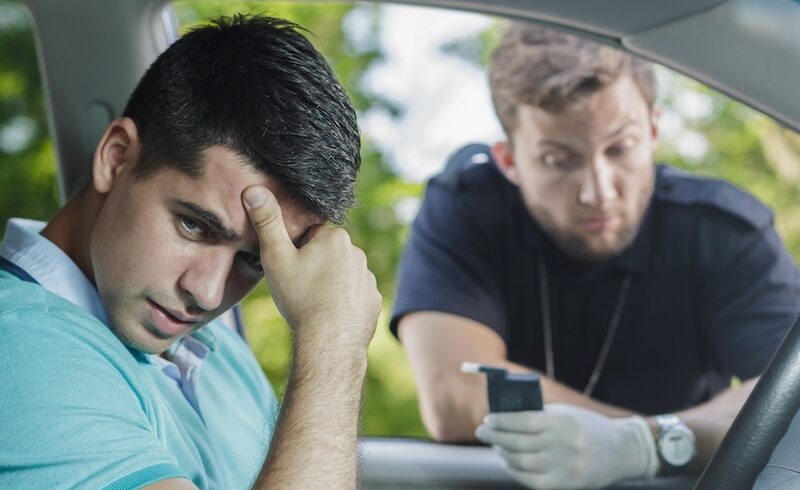
It’s an unfortunate circumstance when we get in trouble with the law, but if it should happen, normally you would ask people who faced a similar charge what you can expect. Unfortunately, Illinois DUI laws can, and do change almost every year.
We’re going to take a look at what you should know about receiving a DUI in Illinois in 2019, as well as what the law changes mean for sentencing. We want to reiterate, you should always drive sober. If you have consumed any alcohol, find a ride home. However, if someone you know asks what they can expect, you can share this information.
What’s Standard
Across the United States, the standard legal blood alcohol content (BAC) limit for drivers is 0.08%.
Although you may hear of people being ‘let go,’ by law enforcement, the state of Illinois has a zero-tolerance policy toward drunk driving.
You should also note that across the nation, there are stronger laws regarding drunk driving when it comes to commercial driver’s license holders. Many states also have laws in place for intoxicated driving when someone in the vehicle is under the age of 16.
What’s Changing with Illinois DUI Laws
There is only one major change that went into effect on January 1, 2019. The new law added aggravating DUI factor. It has to do with driving down the wrong side of a one-way road.
This aggravating factor will cause you to receive heftier fines, penalties, and possibly more jail time.
People often like to get technical with the wording of laws. For instance, you may see the word ‘road’ as an exact term with a specific definition. However, the way this new legislation is worded, those chances are slim to none.
The state of Illinois has covered their bases when it comes to technicalities. The law reads along the lines of (paraphrased) ‘driving a vehicle on a roadway designated for one-way traffic, opposite to traffic control devices.’
The definition of ‘traffic devices’ has been updated to include any and all needed signage and lights in an attempt to curb anyone from creating a loophole.
Penalties: Mostly No Change
Because there were no major changes to Illinois DUI laws, and only the addition of the one stated above, there are no major changes in penalties for driving intoxicated.
However, we will take a chance to remind you of the severity of a DUI by giving some brief insights as to what you may encounter should you be convicted.
Hopefully, if you ever receive a DUI, it will only be one, and you will learn from the mistake. If you receive a second one, it will still be a misdemeanor, but the fines, community service hours, and other obligations increase. For a third or subsequent offense, it will be classified as a felony.
If your first DUI occurs with a BAC of 0.16% or higher, you will have to pay a minimum fine of $400 and complete a minimum of 100 hours of community service.
Should there be a minor under the age of 16, a vehicular crash with bodily injury, or driving on the wrong side of a one-way, you will be subject to higher fines and community service. Basically, each aggravating factor can add up in fines and hours of community service.
For a second DUI, you see a large repeat of the above penalties, after you have served a minimum of 5 days in jail and completed at least 240 hours of community service.
Implied Consent Can Make Things Worse
Long gone are the days of telling an officer that you refuse a chemical test. Chemical tests and the facts surrounding them are another DUI law that has held steady for 2019.
Many people see a refusal as a way to beat the system, but the state of Illinois has ensured fewer and fewer choose to do this.
Should you refuse a breathalyzer screening, your driving privileges are suspended for one year, double the amount of time than if you simply failed the test.
This is because when you sit behind the wheel of a car, it is implied that you are sober, and will consent to screenings should there be any question of your sobriety.
Hitting the Road Again
You may have noticed a recurring theme of driving privileges being suspended with each DUI issue. We aren’t trying to minimize these penalties but do understand that there must be a way for people to get around during the time of suspension.
Luckily, under Illinois law, you can file for a Monitoring Device Driving Permit once certain fees and fines are paid. This permit basically allows you to drive as long as there is an interlock device in your vehicle.
Keep in mind that choosing this permit means that you will end up paying the rental cost and maintenance of the device, extra insurance costs, and the cost to reinstate your license.
These fines and fees are not something to be taken lightly. Many people see their costs reach into the $1,000s!
Make Things Easy on Yourself
Although Illinois DUI laws are only going to keep getting tougher, there is one fact that will remain the same: it is not a charge you want on your record!
Choosing to designate a driver, use a car service or taxi, or simply not drink can save you from having to know the laws and worry about all of the implied costs.
With that said, mistakes happen. With that said, mistakes happen. If you end up with a DUI and have your license suspended or revoked, don’t fight it alone! Instead, contact us to help you have your IL driver’s license reinstated.


